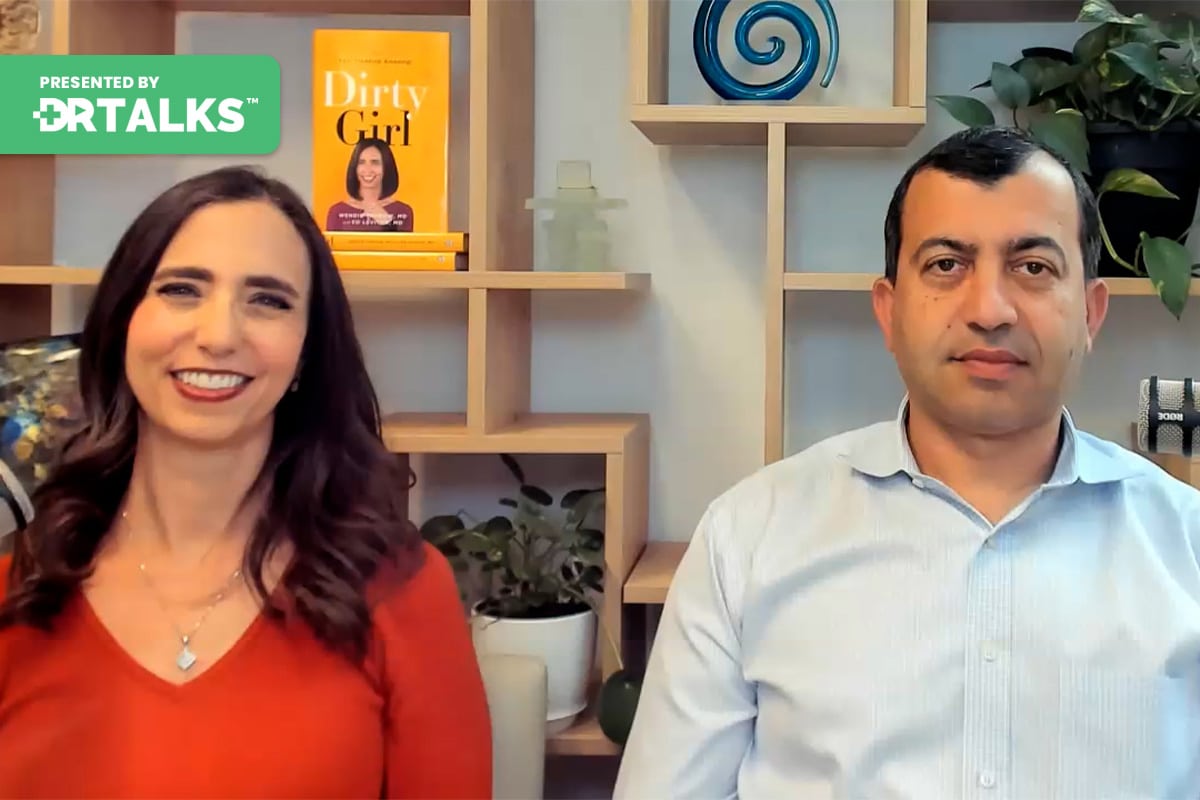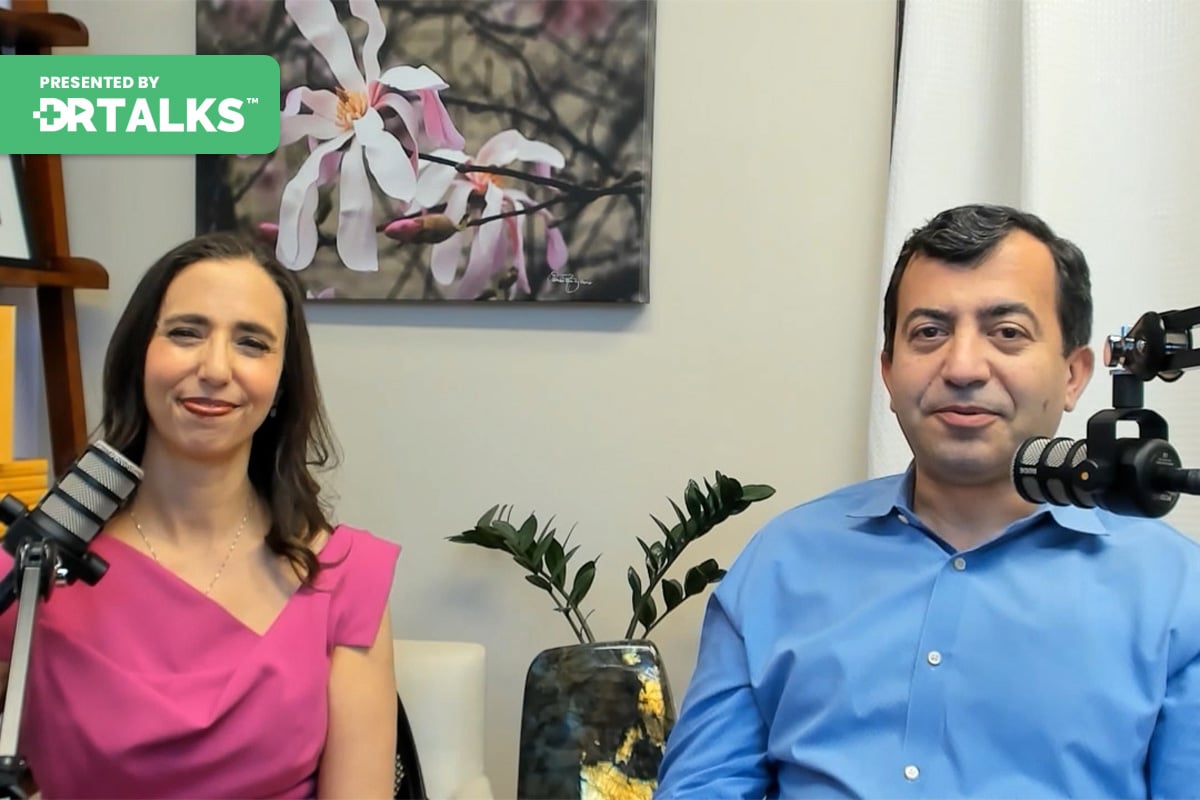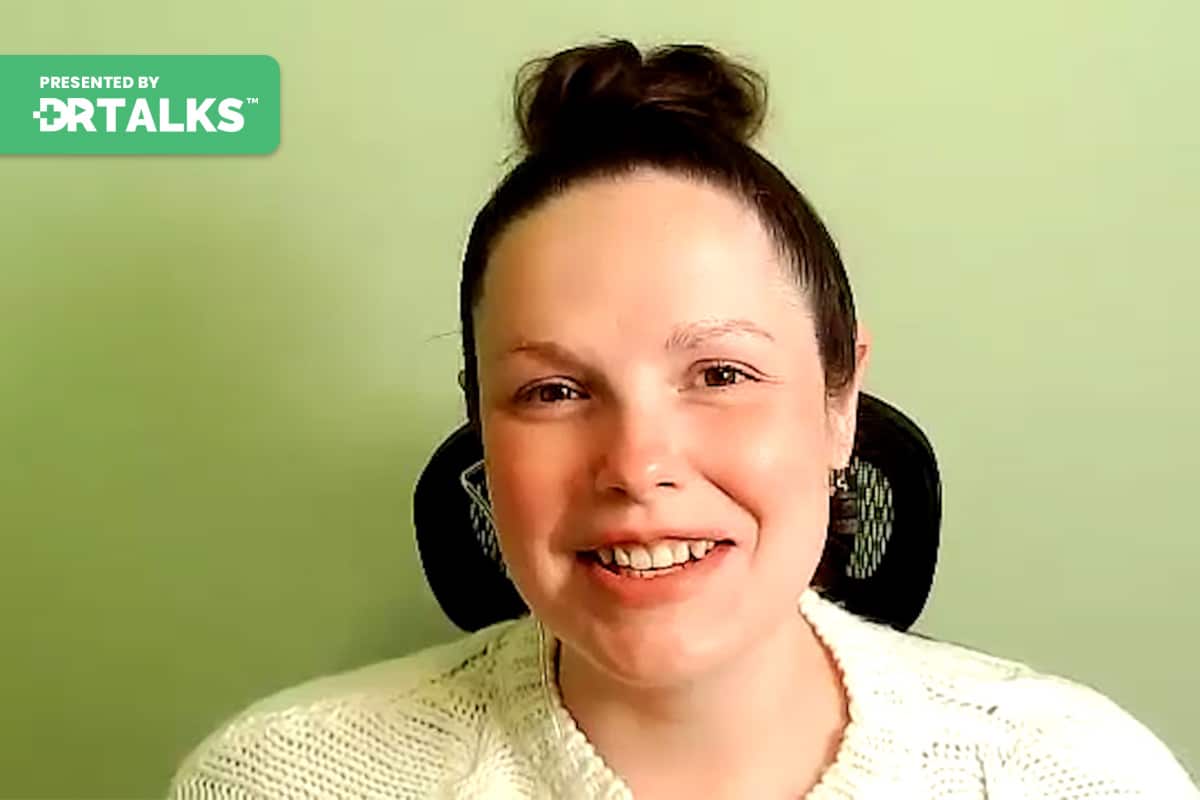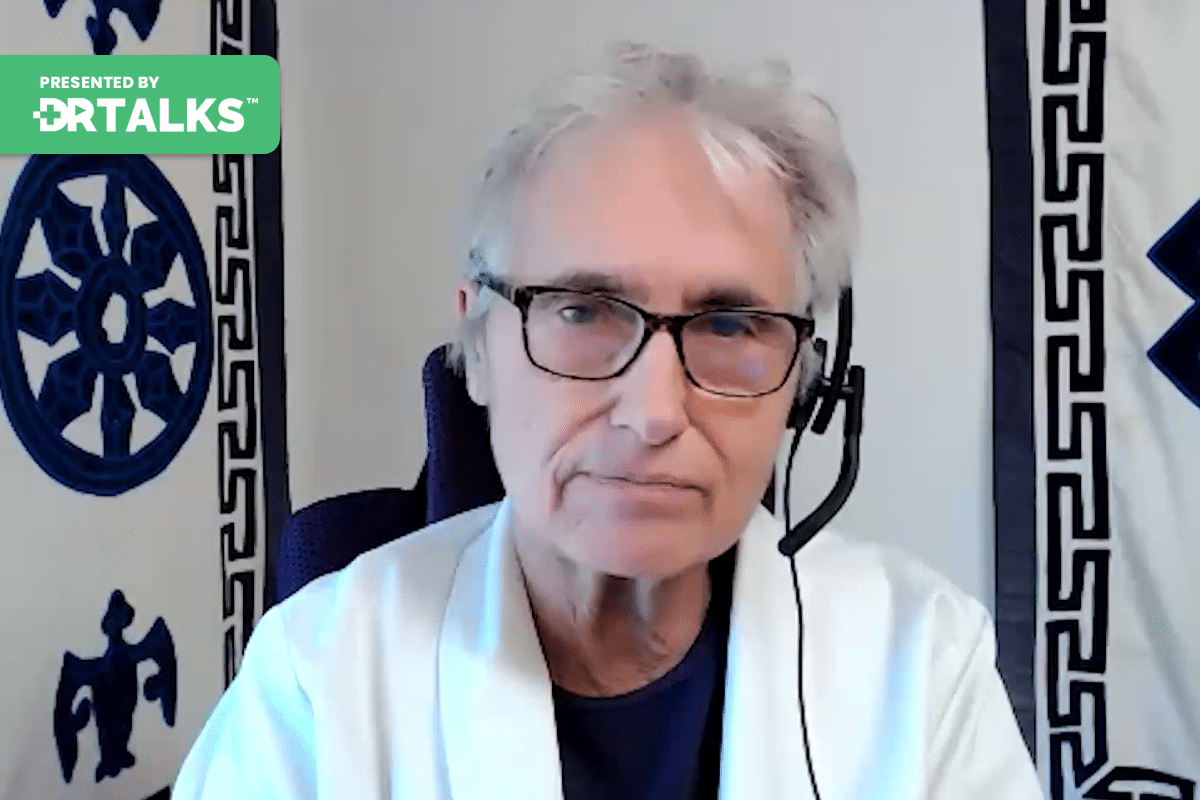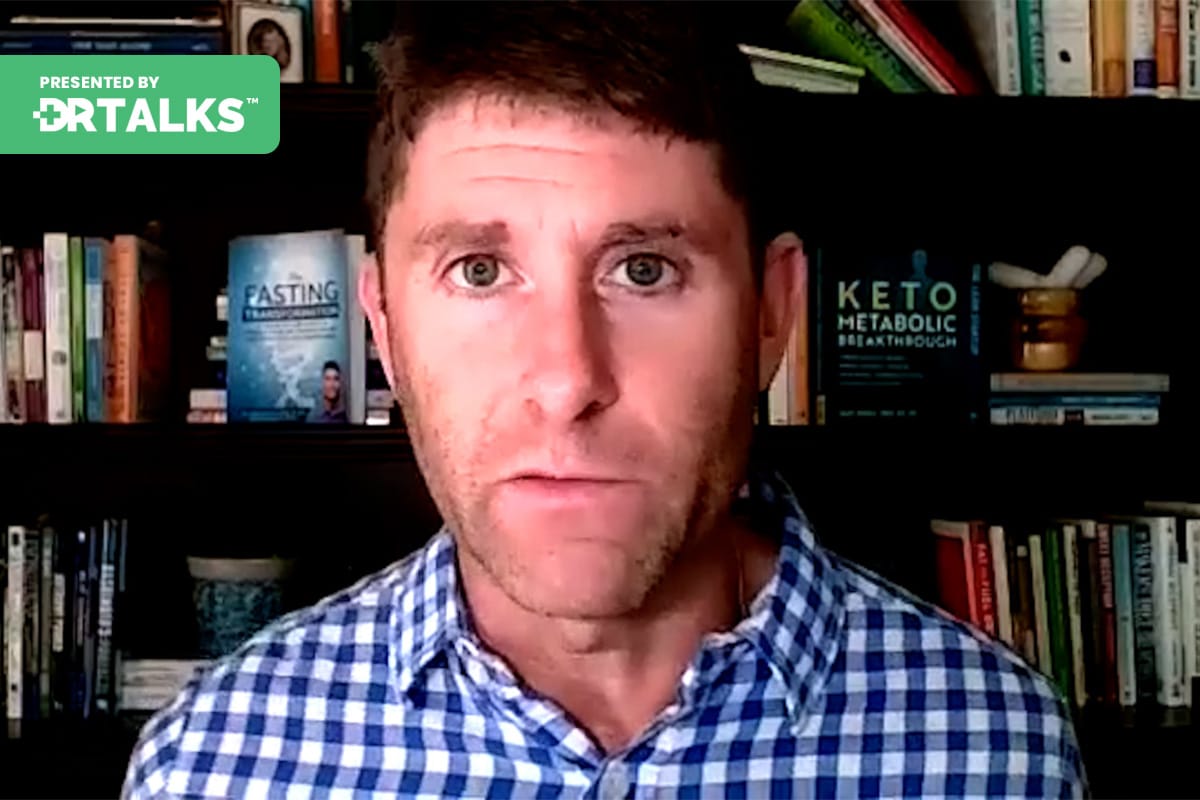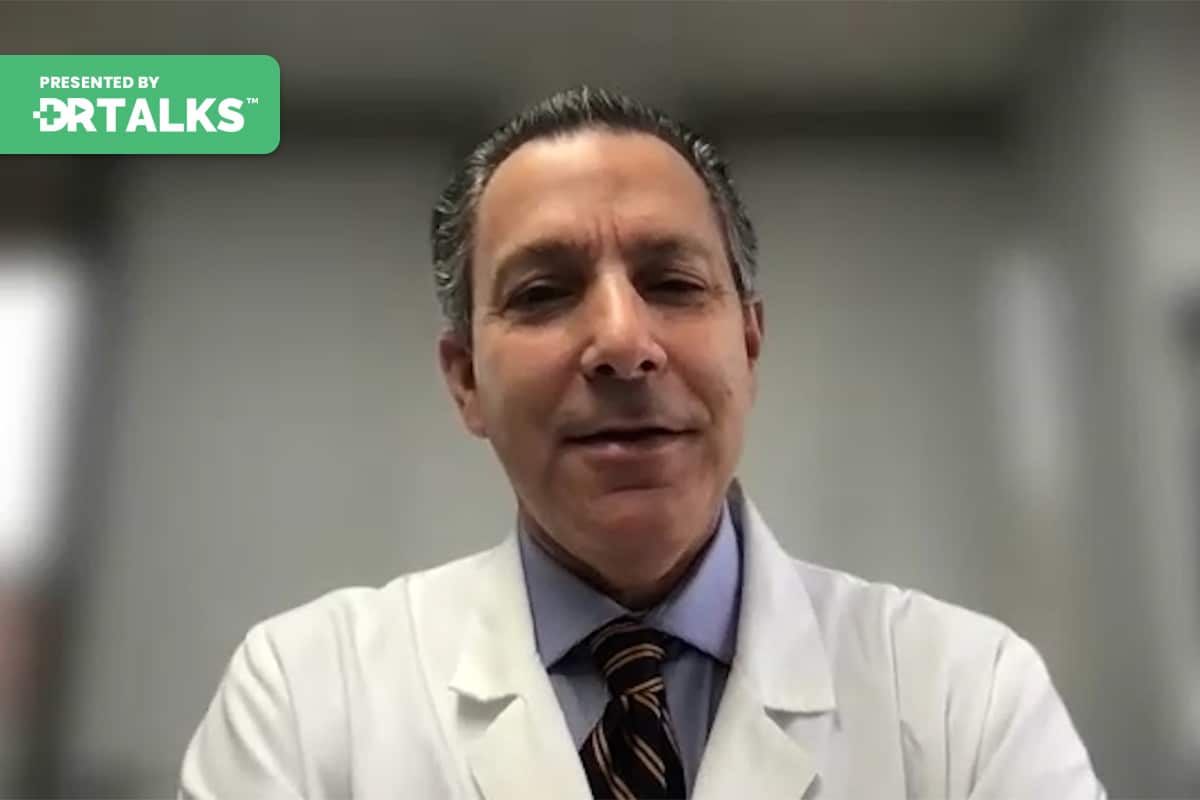Join the discussion below

Wendie Trubow, MD, MBA, IFMCP is a functional medicine gynecologist with a thriving practice at Five Journeys, and is passionate about helping women optimize their health and lives. Through her struggles with mold and metal toxicity, Celiac disease, and other health issues, Dr. Trubow has developed a deep sense of... Read More

Edward Levitan, MD, ABIOM, IFMCP
As a double board-certified physician, I don’t just focus on the physical symptoms of my patients. I believe that their overall well-being is a result of the harmony between their body, mind, and spirit. My extensive training in both traditional Western medicine and Eastern practices like acupuncture and Shiatsu allows... Read More
- Your emotional well-being affects your physical well-being
- The constant flow of negative thoughts that are “having you” should be managed by having a positive mindset
Wendie Trubow, MD, MBA, IFMCP
Hello and welcome to day six of the Environmental Toxicants Auto Immunity And Chronic Diseases Summit. I’m still Dr. Wendie Trubow, but this is still my co host, Dr. Ed Levitan and we are clear that you are in it to get healthy and have and feel freaking amazing by the way. So today we’re gonna talk a lot about emotional health and the gut microbiome and how it impacts Children and healing from chronic diseases and the thyroid. So, what we really wanted to drill into is the impact that your emotional health has on your physical health and how to convert, transform, alter your brain so that you set the stage for health as opposed to illness.
Edward Levitan, MD, ABIOM, IFMCP
Yeah. So I think we have to start with the framework, right? The framework so important. So we say there’s five unique areas of health that we need to constantly be looking at to really look at optimizing our health. So first is the physical body, how your muscles bones aligned, how are we holding ourselves in the world?
Wendie Trubow, MD, MBA, IFMCP
Everyone always sits up straighter when we say that you know your posture.
Edward Levitan, MD, ABIOM, IFMCP
Posture, posture is important for your hormones and we can go into that a little bit. But biochemistry, your chemistry, that’s your functional medicine. That’s a lot of what we talk about here, but also the emotions and that’s what we’re gonna do. We want to get into social friends, family, etcetera. How is your community?
Wendie Trubow, MD, MBA, IFMCP
Island? Are you an island?
Edward Levitan, MD, ABIOM, IFMCP
But we feel like most of the time in this society. And do you have a spiritual, do you have a sense of purpose? Do you, do you know why you wake up in the morning? Do you want to get out of bed or are you slow out of bed and just doing the day to day? So right now, let’s talk about emotional because that’s kind of, I think we spend a lot of time talking about, okay, you can take this supplement or you can eat this food and that’s all amazing. And you can, you need to exercise a certain amount, you need to do all that you really do. And there’s this piece where if we don’t take care of our emotional self, we don’t actually uh we don’t actually go to the next level.
Wendie Trubow, MD, MBA, IFMCP
Let’s talk about why, right. So when you have a thought and by the way, you have thousands of thought every day, maybe 60-80,000 thoughts, depending on how busy your day is. And many of those thoughts are negative. So they go along the lines like I’m so bad at this. I suck I’m never gonna do a good job. Obviously. Screwed it up again. You’re never gonna do it right. You’re such a failure. You get the point right. These are the thoughts that we have and every time you have a thought like that, guess what happens, your adrenals go nuts because they think that you’re about to be eaten by a lion. You’re not, it’s just a stressful thought that’s not in your favor. However, your body doesn’t distinguish that. So you have this thought your adrenals kick in. They put out Cortisol. Cortisol is fight flight or freeze. Cortisol then tells all the other systems in your body to do certain things. So when you’re in fight flight or freeze, guess what? You don’t detox. It says to the liver. Whoa, whoa, a lion is coming. Don’t do detox, get rid of your sugar stores so that we can have fast glucose for energy. It tells your muscles we’re about to run folks. So get ready. And if you’re someone who is in a state of stress, you might be craving sugar and carbs because your body thinks you need to get quick, quick glucose.
Edward Levitan, MD, ABIOM, IFMCP
You don’t want to digestive you. The tiger is looking to digest you that.
Wendie Trubow, MD, MBA, IFMCP
So you shut down your digestion, shut down your detox. And it’s a miracle if anyone ovulate and has normal hormone balance because your adrenals also run that.
Edward Levitan, MD, ABIOM, IFMCP
Well, don’t, let’s talk about that. Cortisol steal because especially for men and women too. So if you have, it’s the same pathway, the stereo stereo genic pathway where steroids, actually, it’s not a steroid pathway. So you start with pregnant alone and then cholesterol from cholesterol to go into pregnant alone. And then you have the sex hormone, estrogen, progesterone, testosterone, and you have cortisol. So the body says either I’m running away from a tiger or I want to reproduce, but you can’t have. right. So you got to choose which one you, the body’s gonna choose. And if you’re constantly stressed, you’re not gonna wanna have sex because you’re constantly running away from the tiger.
Wendie Trubow, MD, MBA, IFMCP
Sex of stress. It’s really, it’s cortisol steal and will, you won’t go down the maintaining your hormones pathway because you’re in your fight flight or freeze pathway and that’s going to be maintained all costs. That’s life or death folks.
Edward Levitan, MD, ABIOM, IFMCP
Alright. So I think that’s, that’s I think that’s a good biochemical but we’ve got to get back to the emotional because that’s why we’re so why, what, what’s the emotion? What’s kind of who cares? Okay. So I have this bad thought and then I don’t feel good, etcetera. Um And then the trouble is we have a subconscious which we’ve been programmed we know through now, epigenetic studies and etcetera that things from multiple generations come down. So you get the emotional state of your grandparents, your parents coming into you.
Wendie Trubow, MD, MBA, IFMCP
Well, let’s back up a sec when people refer to generational trauma. This is that they’re referring to there referring to the changes in your D N A that happened because of the traumas, emotional, physical, psychological, whatever to your forebears, your parents, your grandparents, your great grandparents, your great, great, you know, it goes on and on. So when people talk about generational trauma, that’s what they’re referring to. So now.
Edward Levitan, MD, ABIOM, IFMCP
Well, and I just want to clarify, it’s not quite your D N A, it’s how your D N A is controlled. So you’re gonna have the same DNA. But when you, when you read your Book of Life, if your D N A is your book of what chapters and what order is governed by that.
Wendie Trubow, MD, MBA, IFMCP
Right? So the epigenetic changes alter whether if you have the gene for hypothetically speaking, celiac disease like I have, you may, I mean, this is why not 100% of people with the gene because 40% of people have the gene, but not only 1% of people get celiac. So that’s how the people with celiac celiac because you’re adding up all these traumas that are happening. So when you go back to emotional traumas, they do alter us at a cellular level and that cellular trauma gets stored in the body. So when we talk about, we want to start to improve our experience and our emotional health, we do need to untangle what’s happening at a cellular level. And it’s possible, okay, it is possible.
Edward Levitan, MD, ABIOM, IFMCP
Yeah. And the thing that I want to talk about, which is really talked about is human beings were born, hopefully we’re healthy. And then at some point by whatever design we’re at between six and nine years old, something happens and we tell ourselves some event happens, whether hopefully it’s not a traumatic event, but of course, there are traumatic events but even things that our parents said something and we interpreted it and we then say to ourselves, we’re not lovable where uh we screwed things up. We’re never going to be good at this. Not good enough, not good enough. Then we live our life like that’s true from a decision we made somewhere between six and nine years old and then we get evidence, evidence about evidence that years after that, that becomes true. And if we never work through that, that stays with her life and it’s really talked about that. It actually is a human thing. It’s not your fault, it’s not anybody’s fault, it’s humans by design. And so important to start to work through that. Whether that’s through meditation, whether that’s through therapy, whether that’s through break through seminars or all those combined truthfully.
Wendie Trubow, MD, MBA, IFMCP
Yeah. So I think what Ed’s also getting at is we want to get present to those moments where we go into our childhood and we’re not even conscious of it, right? That moment where it puts us back when we were six or seven or 10 and we decided that we weren’t lovable, weren’t good enough, weren’t smart enough, weren’t something enough, whatever that is and that we’ve been living our lives from that ever since. So, one of the things that we wreck commend is start to notice the thoughts. You’re having those thoughts, you’re having, you’re not having them, they’re having you. So, start to notice what thoughts are having you. And let’s start to create ways and we’re gonna talk about one of them today. What’s one specific way that you can stop the constant flow of negative thoughts? Okay.
Edward Levitan, MD, ABIOM, IFMCP
Yeah. The one thing I’ll say that to make this little less woo potentially is if you think of your brain is a supercomputer, it’s been programmed since before you were, when you were in your mother’s room to every minute, every day, it’s getting programmed and there’s neural transmitters, constantly neural pathways. And when something happens, let’s say your wife, your spouse, your kid does something and hits a button. It’s a no pathway. It’s not like you say, oh I should be upset and go into upset or I should be. It’s usually you just get upset. And then afterwards we say, oh yeah, I chose to get upset, but it really wasn’t a choice. It was really a knee jerk hot button neural pathway. So one thing that at least meditation does is allows us to give a pause and say, do I want to do this pathway? If you do great, doesn’t keep taking it away. But if you don’t, it gives you another pathway. So that’s one power, one way to interrupt the neural pathway.
Wendie Trubow, MD, MBA, IFMCP
And one of my favorite ones we always say to our kids, there’s certain things they can’t say. So you’re gonna find your brain saying to you. I can’t do that or I’m not good enough. I’m not smart enough. So I always recommend and make our kids at the end of any sentence where you can’t or you shouldn’t or you don’t to add it yet. So I can’t afford that yet or I’m not good enough to do that yet or I don’t know how to do that yet because it leaves the opportunity for your brain to figure out how you could do that. Not just that you’re going to do it, but how could you do that? Okay. So because you want to basically give the opportunity to open the door instead of close the door. Okay. Now, the other thing I’ll challenge you on is when you have those thoughts, you often believe those thoughts. So the more you hear, the more you believe you’re basically brainwashed yourself.
Edward Levitan, MD, ABIOM, IFMCP
Well, yeah, it’s not only when you have the thought when you speak it out loud, you’re here. It Yeah. And then you’re making that neural pathway even stronger.
Wendie Trubow, MD, MBA, IFMCP
And you would never speak to someone else the way you speak to your son. So rule number three, is start to manage your thoughts in ways that you would, you would say to others. So instead of saying to yourself, I’m worthless. First of all, never say that out loud because you’re not. But second of all, how can you change that thought? Like, hey, I’m a work in progress. I’m working on it. Nobody’s perfect. I’m doing my best. Okay. Try to say things to yourself that are kind because first of all, You deserve it. 2nd of all, unless you’re an ax murderer, most of you are pretty freaking amazing people except you don’t live like you’re freaking amazing. You live like you’re okay. But we know who you are, who you, how amazing you’re meant to be.
Edward Levitan, MD, ABIOM, IFMCP
It’s one of those like how can you, how can you just enjoy yourself like who you are? Because I bet the majority of people around you do and you wanna look at looking one exercise. We talked to a lot of our patients about is take on living your life and living who you are as other people see you not as you see yourself.
Wendie Trubow, MD, MBA, IFMCP
I actually say take on my view of you. My view of you is that you’re amazing and you’re successful and you’re committed to your family and you do your best wherever you can and you’re working hard at it and yeah, you’re not perfect. But if you were perfect, it wouldn’t be real. So take on our view of you that you are just an amazing human and doing what you can. And every day when you find yourself thinking those thoughts about how worthless you are, how bad you are, don’t listen to them and actually literally change your thoughts and stop brainwashing yourself.
Edward Levitan, MD, ABIOM, IFMCP
Yeah. Yeah. So I’m personally really excited because we have some flipping amazing people that can really experts that can really dive in and talk to them, talk to you about what’s possible. Yeah. So, and we all have it, whether it’s little or big or whatever else. We all have something that we’re working on and it’s just super exciting looking, just super excited for everybody to dig in and look, talk, listen to our experts and I know I got a lot of benefit. So I expect that everybody gets a lot of benefits.
Wendie Trubow, MD, MBA, IFMCP
So put seat belts on, get ready for day six. We’ll be here at the end for you. Have a great day. Don’t hesitate to reach out to us with any questions again. Welcome to day six.
Downloads

